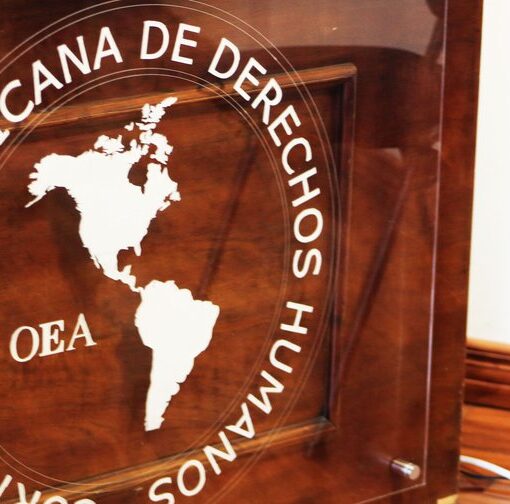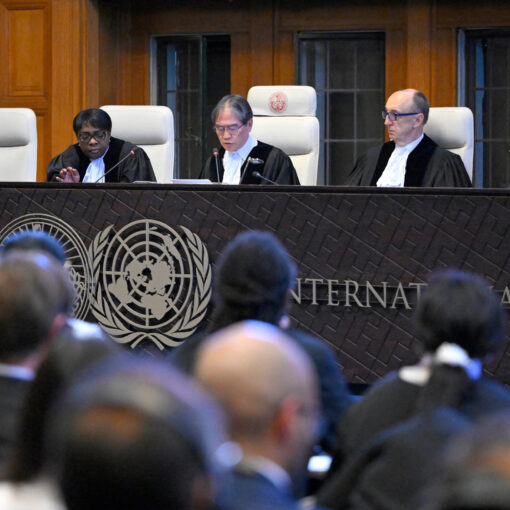by Margaret Barry
New updates to the Center for Climate Change Law and Arnold & Porter Climate Case Chart. Find the complete chart here.
DECISIONS AND SETTLEMENTS
Friends of the Earth v. EPA (D.D.C. March 27, 2013): added to the “Force Government to Act/Clean Air Act” slide. Plaintiffs sought to compel EPA to issue a determination under Section 231 of the Clean Air Act regarding whether lead emissions from aircraft engines using aviation gasoline (avgas) cause or contribute to air pollution which may reasonably be anticipated to endanger public health or welfare. The district court granted EPA’s motion for summary judgment, holding that it lacked subject matter jurisdiction because an endangerment determination under Section 231 is not the type of nondiscretionary act or duty that the Clean Air Act’s citizen suit provision (42 U.S.C. § 7604) grants district courts the jurisdiction to compel.
County of Sonoma v. Federal Housing Finance Agency (9th Cir. March 19, 2013): added to the “Stop Government Action/Other Statutes” slide. The Federal Housing Finance Agency (FHFA), the regulator and conservator of Freddie Mac and Fannie Mae, issued a directive preventing Freddie Mac and Fannie Mae from purchasing mortgages for properties encumbered by liens created by property-assessed clean energy (PACE) programs. FHFA indicated, among other things, that the first liens of the PACE programs could disrupt the housing market and that there was a lack of underwriting standards to protect homeowners and an absence of energy-saving standards to allow for the valuation of home improvements. Plaintiffs alleged that FHFA must issue a regulation to implement this directive. The district court ruled against FHFA and required completion of notice-and-comment rulemaking. On appeal, the Ninth Circuit dismissed the action, ruling that FHFA’s directive was a lawful exercise of its statutory authority as conservator, and that the courts therefore lacked jurisdiction.
Sierra Club v. U.S. Fish & Wildlife Serv. (D.D.C. March 19, 2013): added to the “Petitions Under the Endangered Species Act and Related Litigation” slide. The Sierra Club challenged the determination of the Fish and Wildlife Service (FWS) in response to its petition to revise the critical habitat for the leatherback sea turtle, claiming that the FWS’s decision to delay any revision was arbitrary and capricious. It also alleged that the defendants had unlawfully delayed in designating additional critical habitat for the turtles. One of the claims in the Sierra Club’s petition was that “threats on the nesting beach are substantial and that global climate change is exacerbating the situation.” The court held that the FWS’s determination was unreviewable because the applicable statutes (the Endangered Species Act and the Administrative Procedure Act) provided no manageable standard to evaluate the FWS’s exercise of discretion.
NRDC v. Mich. Dept. of Env. Quality (Mich. Ct. App. March 21, 2013): added to the “Challenges to Coal-Fired Power Plants” slide. In 2011, Natural Resources Defense Council and Sierra Club filed a lawsuit seeking review of the Michigan Department of Environmental Quality’s (MDEQ) issuance of an air permit for the expansion of a coal-fired power plant in Holland, Michigan. The lawsuit alleged that the permit did not comply with federal regulations requiring that modification permits address greenhouse gas emissions. The state agency had issued the permit in February 2011 following a court decision finding that the agency had overstepped its authority in denying the permit. The circuit court affirmed MDEQ’s issuance of the permit, and plaintiffs appealed, contending that the circuit court applied the wrong standard of review and that the permit was not authorized by law because the “best achievable controls technology” (BACT) analysis in support of the permit did not adequately consider clean fuels and therefore did not comply with the Clean Air Act (CAA). The court of appeals ruled that the circuit court had reviewed the permit’s compliance with the CAA de novo and had not improperly deferred to MDEQ. The court of appeals stated that although the circuit court may have improperly reviewed the record evidence in a situation where there was no contested case hearing, such an error was harmless. In its own de novo review of CAA compliance, the court of appeals held that MDEQ’s BACT analysis was adequate because it provided a reasoned analysis of each type of fuel that the facility could utilize without major modifications. The court stated that the CAA does not generally require a facility to be redesigned to use the cleanest fuel.
Butler v. Brewer (Ariz. Ct. App. March 14, 2013): added to the “Common Law Claims” slide. Plaintiffs filed a complaint for declaratory and injunctive relief on the basis of the public trust doctrine. Among other things, they sought a declaration that the atmosphere was a public trust asset and that the defendants had a fiduciary obligation as trustees to take affirmative action to preserve the atmosphere and other trust assets from the impacts of climate change. They asked the court to mandate that the state institute reductions in CO2 emissions of at least six percent annually. The superior court dismissed the action, stating that plaintiffs’ remedies were with the legislature or Congress. On appeal, the court of appeals in a memorandum decision rejected the defendants’ argument that determinations of what resources are protected by the public trust doctrine and whether the state has violated the doctrine are non-justiciable. The court assumed without deciding that the atmosphere was part of the public trust subject to the doctrine. Nonetheless, the court of appeals affirmed dismissal of the complaint, holding that the complaint failed to make the requisite showing of a specific constitutional provision or other law that had been violated by state action or inaction. Furthermore, the court agreed in part with defendants that a state statute precluded defendants from redressing Butler’s grievances. Butler had not challenged the constitutionality of the statute or identified a basis upon which it could be found unconstitutional. The court determined that it was without power to order the state to take action in violation of the statute and that it therefore could not grant relief.
Filippone v. Iowa DNR (Iowa Ct. App. March 13, 2013): added to the “Common Law Claims” slide. In 2011, Glori Dei Filippone and others filed an administrative petition with the Iowa Department of Natural Resources (DNR) requesting adoption of rules to reduce statewide greenhouse gas (GHG) emissions from fossil fuels. Filippone cited the Public Trust Doctrine as one of the rationales for requiring such regulation. DNR denied the petition, stating that it had already adopted state regulations regarding an inventory of statewide GHG emissions and also citing existing and impending federal regulation of GHG emissions from certain sources in the state. Filippone filed a petition for judicial review of DNR’s denial of the petition, and the district court affirmed DNR’s determination. Filippone again appealed, and the court of appeals upheld the denial. The court of appeals declined to expand Iowa’s public trust doctrine to include the atmosphere, noting that the doctrine has a “narrow scope.” The court of appeals also held that DNR had given fair consideration to the petition and that denial of the petition was not unreasonable, arbitrary, capricious or an abuse of discretion, and that Filippone had failed to preserve error on her Inalienable Rights Clause claim. One judge on the panel issued a concurring opinion stating that he felt that there was a “sound public policy basis” for extending the public trust doctrine to air but that the court was constrained by Iowa Supreme Court precedent limiting the doctrine’s scope. Filippone has filed an appeal in the Iowa Supreme Court.
Merced Alliance for Responsible Growth v. City of Merced (Cal. Ct. App. Nov. 29, 2012) (petition for review denied March 13, 2013): added to the “State NEPAs” slide. On March 13, 2013, the California Supreme Court denied a community group’s petition for review in a case in which the community group had unsuccessfully challenged the City of Merced’s approval of a regional distribution center in the City boundaries. The community group had alleged that the environmental impact report (EIR) prepared for the proposed project did not address the project’s impact on greenhouse gases and climate change. The intermediate appellate court held that the EIR adequately addressed these issues.
NEW CASES, MOTIONS AND NOTICES
Southwest Energy Efficiency Project v. New Mexico Construction Industries Commission (N.M. Ct. App. Apr. 4, 2013) (motion for contempt order filed, Apr. 11, 2013): added to the “Stop Government Action/Other Statutes” slide. In 2011, the New Mexico Construction Industries Commission adopted revisions to four building codes. The purpose of the revisions was to remove energy efficiency requirements that went beyond the 2009 International Energy Conservation Code. There was no discussion or deliberation about the revised codes at the meeting at which the revisions were adopted, and the Commission did not make any separate findings or orders. A number of organizations and individuals challenged the adoption of the revised codes. The New Mexico Court of Appeals set aside the revisions, ruling that the Commission had failed to state any reason for its adoption of the revised codes. The court directed the Commission to reconsider and revote on the revisions and to make a statement as to the rationale for its actions, preferably in written form. On April 11, 2013, plaintiffs filed a motion seeking an order holding the Commission and the Governor of New Mexico in contempt for failing to comply with the court’s April 4, 2013 order. The motion alleged that since the court issued its order, the Commission and the Governor had twice announced that they intended to continue to enforce the building codes that the court had set aside.
Competitive Enterprise Institute v. EPA (D.D.C., filed March 28, 2013): added to the “Force Government to Act/Other Statutes” slide. Plaintiffs filed a lawsuit against EPA pursuant to the Freedom of Information Act seeking disclosure of EPA instant message transcripts for communications sent from or to three senior EPA officials, including EPA Administrator Lisa Jackson. The complaint seeks communications related to climate change and the regulation of coal-fired generators.
California Construction Trucking Ass’n Inc. v. EPA (D.C. Cir., filed March 25, 2013): added to the “Industry Lawsuits/Challenges to Federal Action” slide. In April 2011, parties petitioned EPA to reconsider aspects of the greenhouse gas emissions standards issued in May 2010 for model year 2012-2016 light duty vehicles. Petitioners argued that EPA had failed to make the standards available to the Science Advisory Board for review and comment prior to promulgating the standards. In January 2013, EPA denied the petition for reconsideration, finding that the issues raised by the petition could have been made during the public comment period for the rulemaking and that the petition “failed to demonstrate that its objection is of central relevance to the outcome of the rulemaking.” On March 25, 2013, petitioners filed a Petition for Review in the D.C. Circuit seeking review of EPA’s denial.




